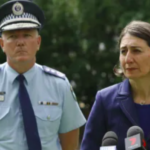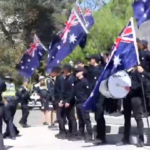UN Finds Australian Government Guilty of Human Rights Abuses

Prisoners being sedated, tied to chairs and subjected to physical abuse – it sounds like something out of Guantanamo Bay, but in reality these horrific activities occur much closer to home.
Earlier this week, the United Nations Human Rights Commission found that the Australian government committed numerous human rights abuses by detaining four intellectually disabled Indigenous men and subjecting them to ‘frequent physical, mechanical and chemical restraint.’
Each of the men, known only by pseudonyms, have been detained indefinitely in Northern Territory correctional facilities, despite being found not guilty of any crime.
One man, Mr KA, stabbed his uncle to death at the age of 16.
However, the court found that he was not responsible for his actions as he suffered from epilepsy, brain injuries and intellectual impairments.
He has since been held in custody at a maximum security prison in Alice Springs, as due to his personal circumstances there was ‘no practicable alternative’ for supervision.
In 2012, Mr KA was isolated in his cell and began banging his head against the walls of his cell until it bled.
He was then restrained by prison officers and tranquilised to render him unconscious.
His legal guardian was not consulted over the incident due to an ‘oversight’ by the prison.
His guardian also raised concerns in 2013 that Mr KA had been tied to a chair to restrain him on at least 16 occasions, often for hours at a time.
He was tranquilised on many of those occasions.
Another man, KD, is also being held at the same maximum security prison.
The 50 year old male was diagnosed with an acquired brain injury following years of petrol and alcohol abuse.
He was charged with a string of serious criminal offences, including murder, robbery, aggravated assault and attempted sexual intercourse without consent.
Again, he was found ‘not guilty’ of all charges due to his mental impairments.
He was ordered to remain in strict custody in the maximum security prison.
Despite a finding by the Supreme Court Chief Justice that the facilities at the prison were unsuitable as they offered no opportunities for rehabilitation or treatment for Mr KD’s mental health issues, he has remained there for the past 18 years.
The two other males involved in the Commission’s review, known as Mr KB and Mr KC, were also being held at the same prison until recently, when they were transferred to Kwiyernpe House, a nearby high-security, prison-like facility.
Mr KB, who has been diagnosed with a brain injury and epilepsy, was charged with unlawful aggravated assault, but was found unfit to stand trial due to his intellectual disabilities.
He was initially placed in the high security prison as a short term solution due to a lack of suitable facilities, however he remained there for almost six years – despite the likely penalty for the offence being 12 months’ imprisonment.
Again, the Supreme Court Chief Justice found that it was inappropriate to hold Mr KB in prison, however he was left with no other choice due to the danger that Mr KB posed to the community, and a lack of a suitable facility to supervise him.
Similarly, Mr KC was charged with unlawful aggravated assault and unlawful damage to property after he attacked his carer, however he was also found unfit to stand trial as he suffered from an intellectual impairment and autism.
His charges would also have likely resulted in a 12 month prison sentence, however he was held in a maximum security prison for five years before being transferred to Kwiyernpe House.
While the men are under the care of the Northern Territory’s prison system, the Commission found that the Commonwealth Government was responsible for protecting their human rights.
It found that the Commonwealth had failed to work with the NT’s prisons to provide suitable facilities to treat and rehabilitate intellectually disabled persons such as the four men described above.
Further, the government breached human rights by forcing the men to be arbitrarily detained, and by failing to allow them to live in the community.
The Commission made a series of recommendations, but the government has rejected the findings, stating that it has not perpetrated any human rights violations nor breached any treaties.
It further believes that it is not responsible for the actions of state and territory governments.
The government also argued that the Commission did not have the power or authority to make the inquiries and, accordingly, it would not inquire into the recommendations and arguments contained in the Commission’s report.
Since then, the government has been blasted by human rights organisations for ‘dodging its obligations, with the Attorney-General’s department continuing to deny responsibility.
It remains to be seen whether the men will be moved to more appropriate accommodation in the near future.






